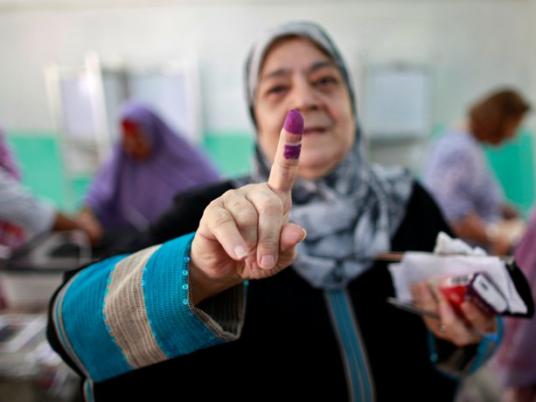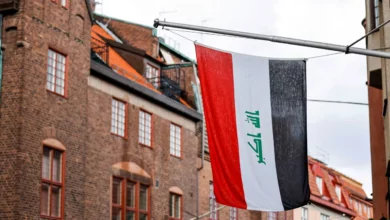Egyptian and international human rights organizations on Wednesday expressed concerns over what they called a "systematic crackdown" on opposition voices and journalism in Egypt ahead of the November parliamentary elections.
The International Federation for Human Rights (FIDH), the Egyptian Organization for Human Rights (EOHR) and the Cairo Institute for Human Rights Studies (CIHRS) said in a joint press statement that "a string of recent events" represent an orchestrated attempt to muzzle dissent.
The FIDH claimed in the statement that the Egyptian government has launched a recent campaign to monitor and censor text messages to prevent any actions opposing the regime of President Hosni Mubarak.
In recent days, Egypt's National Telecommunications Regulatory Authority (NTRA) has imposed new restrictions and controls to censor text-messaging services.
The FIDH also pointed to the firing of Al-Dostour Editor-in-Chief Ibrahim Eissa, a known critic of Mubarak and his son Gamal, by the Wafd Party president and owner of the independent daily Al-Wafd paper, Sayyed al-Badawy. Analysts have interpreted the step as an attempt to court favor with the regime ahead of the parliamentary elections.
Similarly, the Cairo-based Arabic Network for Human Rights Information (ANHRI) expressed its strong condemnation of numerous, accelerating decisions that, it says, clearly restrict press freedom in Egypt.
In a statement Wednesday, ANHRI highlighted the decision of the Nilesat satellite administration to stop broadcasting four satellite channels. ANHRI also voiced concern over Nilesat's alleged warning to two other channels as well as the satellite administration's adoption of a prior policy that requires satellite stations to obtain permission from the Ministry of Information before broadcasting live coverage of any event.
"The hysteria of a crackdown on freedom of expression that has taken hold of the Egyptian government in the recent period is a situation of utmost danger to the future of democracy and civil liberties in Egypt, and an attempt to return the pro-democracy movement to the way things were before 2005, the year when a widespread political movement began demanding democracy which has been absent in Egypt for decades," the Arabic network said in a statement.
ANHRI said recent events demonstrate the Egyptian government's aspiration to control all types of media before the November parliamentary elections, considered a preliminary stage to the upcoming presidential election.
Egypt announced yesterday that "The Egyptian Media Production City has stopped the licensing of the global Al-Barahin company which owns a number of satellite channels. This decision will be in effect while the company makes adjustments to its affairs."
The Al-Barahin Global company owns the satellite stations "Al-Nas," "Al-Hafiz," "Al-Sihha wa al-Gamal," and "Al-Khaleejiya," and broadcasts all its programs on the frequencies of the Egyptian satellite Nilesat.
At the same time, the authorities decided to send warnings to OnTV and OTV channels, owned by Christian businessman Naguib Sawiris, who owns the mobile phone company Orasco Telecom.
Less than a month ago, the Egyptian authorities closed two television channels, the Saudi channel Orbit which broadcasts the program "Al-Qahira Al-Youm"–known for its criticism of the Egyptian government–and the Jordanian channel Al-Badr. Authorities claimed the content on these stations incited sectarianism.
The Egyptian government, represented by the Ministry of Information, announced last month that it will review the channels on Nilesat to make sure they do not broadcast extremist or sectarian content.




